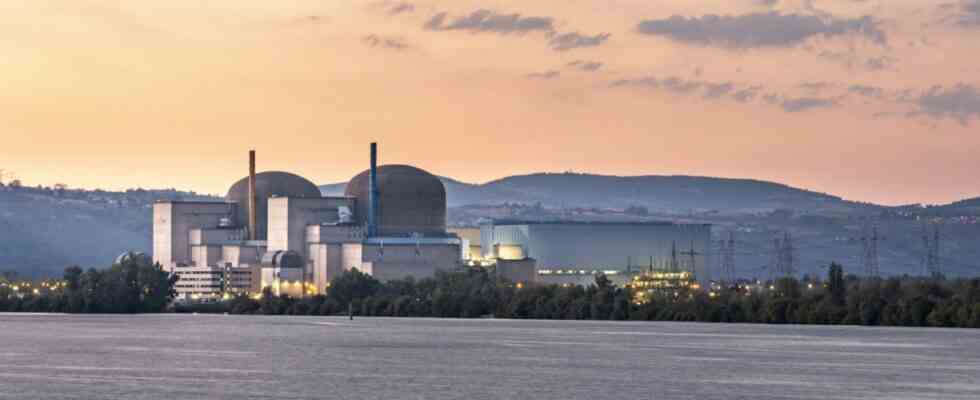Austria has against that controversial taxonomy law filed a lawsuit with the EU Commission at the EU General Court in Luxembourg. This was announced by the government in Vienna on Monday. This regulation declares investments in nuclear and gas power plants to be sustainable under certain circumstances. This should apply from January. Austria’s climate protection minister Leonore Gewessler (Greens) says the legal act endangers “our future and is more than irresponsible, because nuclear power and natural gas do not contribute to climate protection”.
The law could allow German municipal utilities or the French nuclear company EDF to issue green bonds to raise the billions for new gas and nuclear power plants. Such promissory notes pay less interest than regular bonds; financing becomes cheaper. In addition, eco-funds may hold shares in the companies. This has been sharply criticized by environmental groups, many MEPs and some governments.
Luxembourg’s government announces that it will support Austria’s action for annulment. Already in September threatened environmental organizationsto go before the EU court if the Commission does not change the rule. The federal government rejects the law in this form, but the traffic light coalition could not agree to file a lawsuit. The court cases are likely to be the last chance to stop the law after the European Parliament approved the so-called delegated act in July with a surprisingly large majority.
The law belongs to green taxonomy. This classification system determines which economic activities are climate and environmentally friendly. It has to be green washing stop, so the bad habit that companies or investment funds sell themselves as greener than they really are. Trouble like recently with the fund company DWS should be avoided. The EU Commission wants to increase trust in eco-financial products. As early as April 2021, the authority presented a legal act with criteria for important sectors and goods: a total of 170 activities that account for 80 percent of greenhouse gas emissions. This rule has been in effect since the beginning of the year. But the thorny question of what applies to nuclear and gas power plants has been postponed. When the Commission finally presented the nuclear and gas legislation, it provoked heated debates.
Has the Commission exceeded its powers?
The authority argues that nuclear and gas power plants are needed as bridging technologies for the transition to a climate-friendly power supply. However, critics fear that the inclusion of nuclear and gas undermines the credibility of the entire taxonomy from the point of view of environmentally conscious investors and fund companies. However, delegated acts come into force automatically if the European Parliament or the Council of Ministers, the body of EU governments, do not object. And there was no majority for such a blockade.
Austria justifies its lawsuit by saying that the Commission should not have passed “such far-reaching and politically sensitive decisions” as a delegated act, as stated in a communication. These commission laws, which are difficult to stop, usually only set out details. In addition, Vienna argues that the overarching rules for the green taxonomy prohibit including the two technologies. After all, natural gas is “fundamentally a climate-damaging energy source,” and nuclear power plants run the risk of reactor accidents with enormous environmental damage.
New reactor buildings approved by 2045 are to benefit from the legal act; Investments in lifetime extensions can be considered until 2040. The prerequisite for the coveted sustainability label should be that the facilities meet the latest safety standards and that the governments also have a concept of how they want to set up a repository for high-level radioactive waste by 2050 at the latest. Gas-fired power plants only receive the green label if they replace coal-fired power plants and are very efficient. In addition, they must completely switch from natural gas to climate-friendly fuels such as biogas or hydrogen by 2035. However, it will be difficult to expand hydrogen production in this way by then.
In the end, the investors decide
Even if the plaintiffs should fail in court, it is unclear how much green investor money will actually flow into gas and nuclear power plants. Because the Commission is aware of the problem that many investors find this eco-rating strange. Therefore, Brussels relies on gradations and transparency. In any case, the taxonomy provides for three subgroups of climate and environmentally friendly activities: Classic green activities such as operating wind turbines are best. There are also enabling activities – including the manufacturers of the rotors – and transitional activities. This weakest subgroup includes technologies that are only needed on the way to a climate-friendly economy. And the law only classifies nuclear power and gas as temporary transitional technologies.
Eco-funds must also provide clear information as to whether they only contain stocks and bonds from classic green corporations or also paper from gas and nuclear companies. It is therefore in the hands of investors whether money from eco-funds flows into nuclear reactors. Fund providers will probably not include nuclear companies in eco-products if there is no demand for them among savers.

